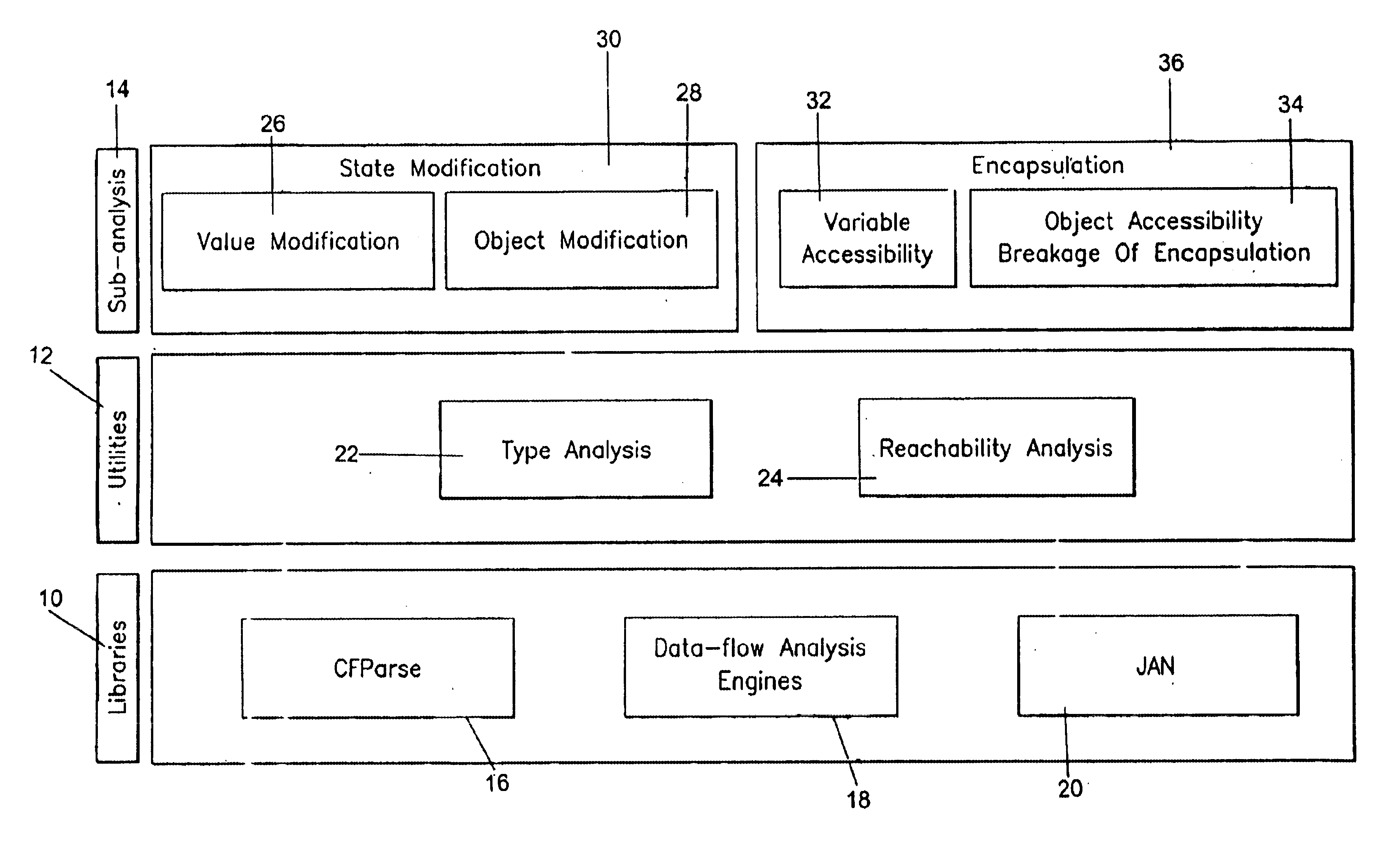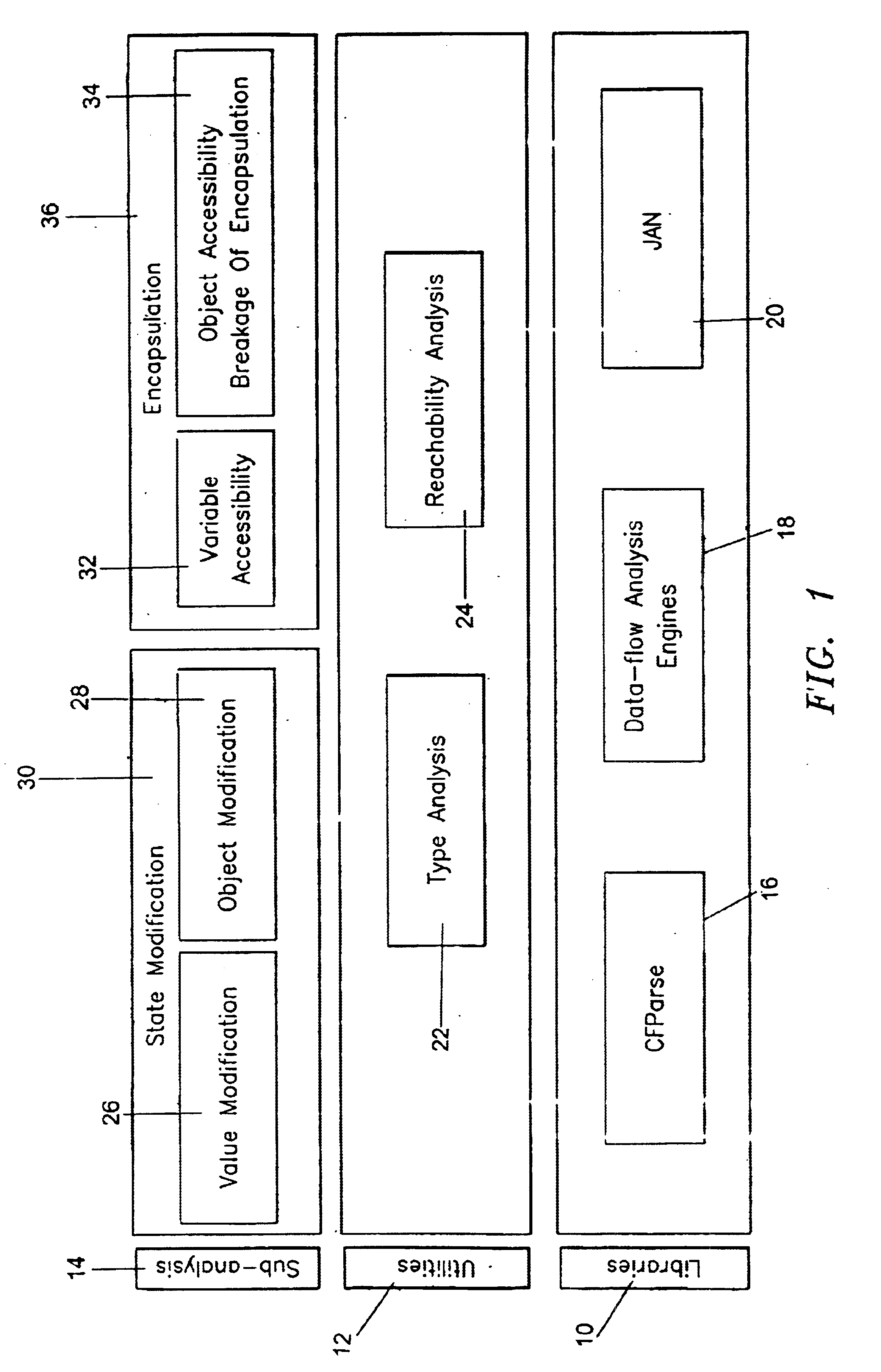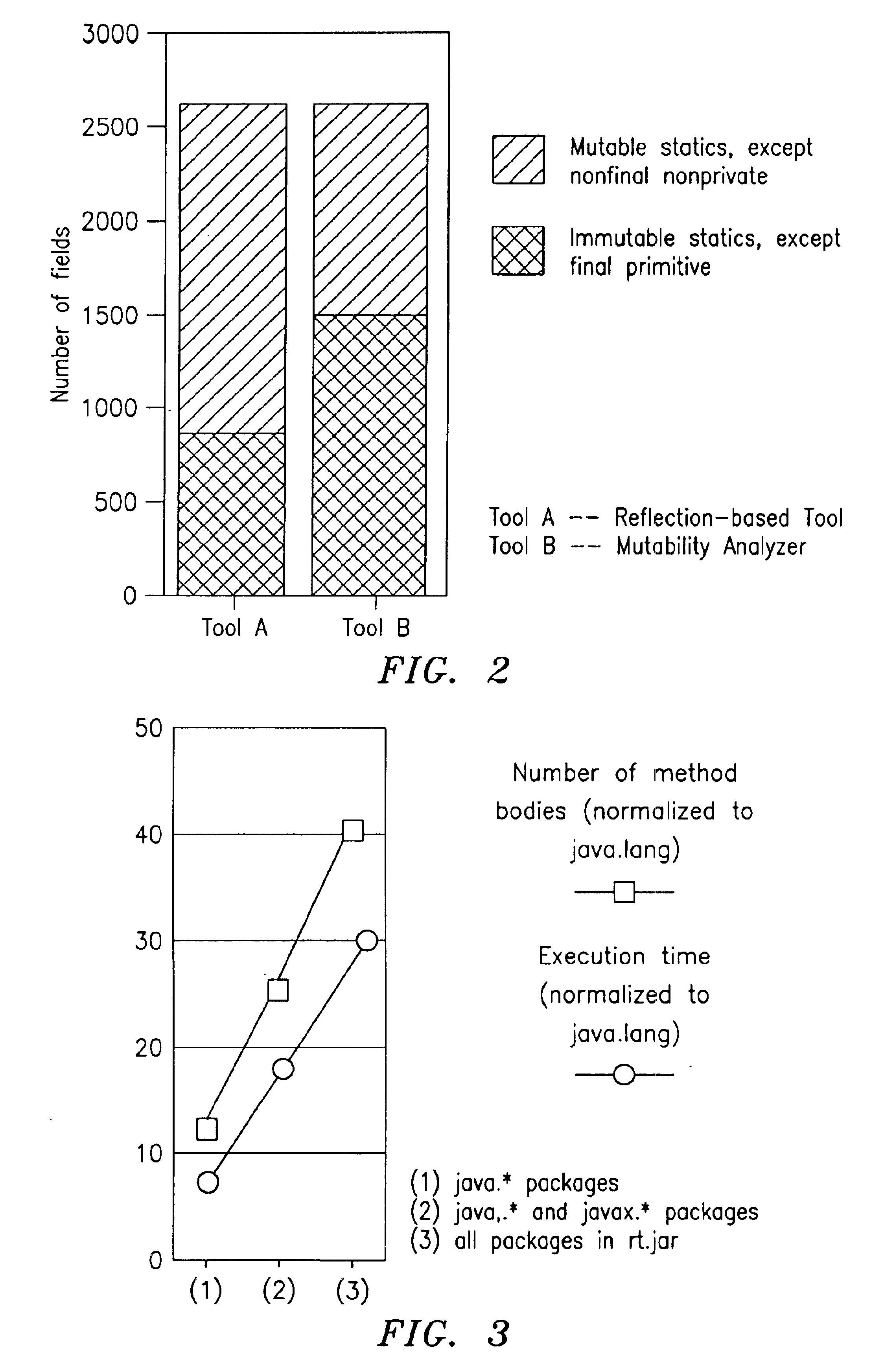Mutability analysis in Java
a technology of mutability analysis and java, applied in the field of object-oriented programming languages, can solve the problems of malicious behavior, unfavorable security control of high security restrictions on what it can do, so as to reduce security exposures and maintain the ability to ensure complian
- Summary
- Abstract
- Description
- Claims
- Application Information
AI Technical Summary
Benefits of technology
Problems solved by technology
Method used
Image
Examples
example 1
[0080]
public class Sample{ / ****************************************************** Fields accessible from outside the component****************************************************** / public Object anObject; / / variable and referenced object / / are accessiblepublic final int[ ] anArray = {1, 2, 3}; / / referenced object / / is accessible********************************** private fields*********************************private Vector privateData; / ********************************************************** Constructors causing accessibility of** referenced object of privateData*********************************************************** / public sample ( ) {privateData − new Vector ( );privateData.add (anArray); / / anArray is an / / accessible variable}public sample (Object data) {privateData − nev Vector ( );privateData.add(data); / / data is referenced / / from outside} / ****************************************************** Methods causing modification of privateData***********************************...
PUM
 Login to View More
Login to View More Abstract
Description
Claims
Application Information
 Login to View More
Login to View More - R&D
- Intellectual Property
- Life Sciences
- Materials
- Tech Scout
- Unparalleled Data Quality
- Higher Quality Content
- 60% Fewer Hallucinations
Browse by: Latest US Patents, China's latest patents, Technical Efficacy Thesaurus, Application Domain, Technology Topic, Popular Technical Reports.
© 2025 PatSnap. All rights reserved.Legal|Privacy policy|Modern Slavery Act Transparency Statement|Sitemap|About US| Contact US: help@patsnap.com



